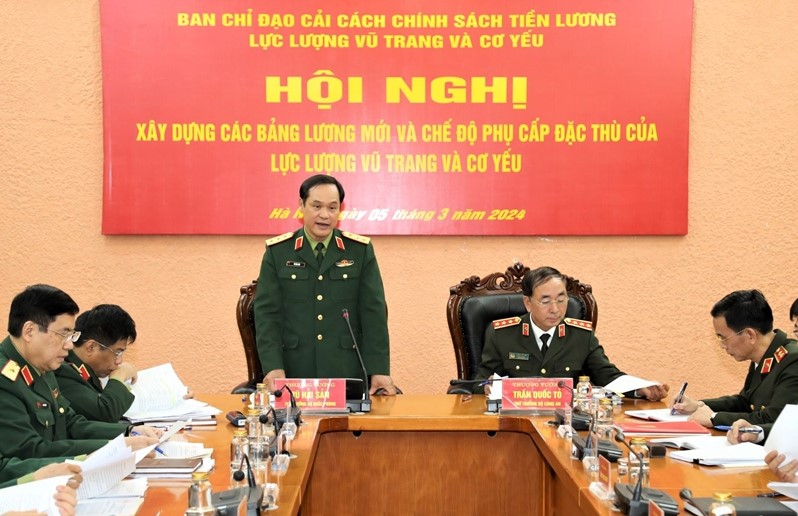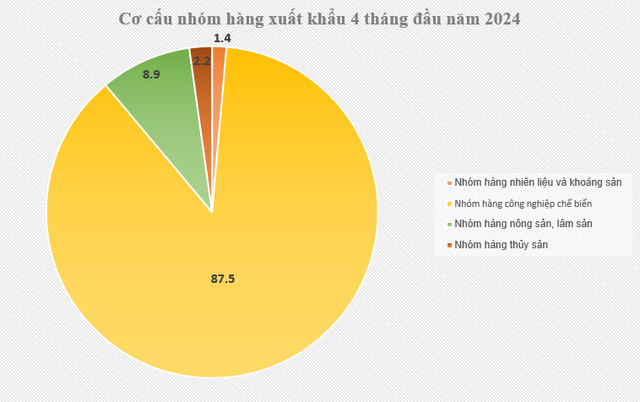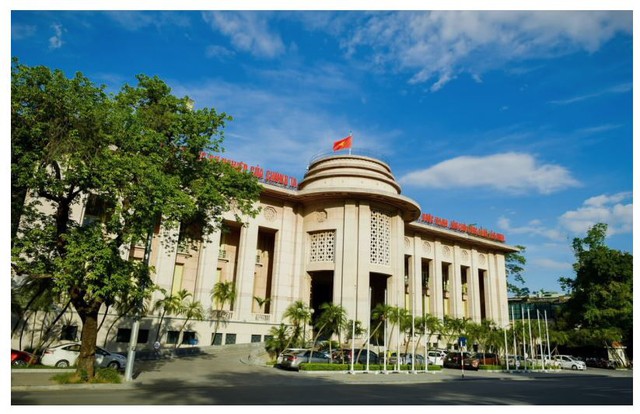The Steering Committee for the Reform of Salaries of Armed Forces and Defense Agencies recently organized a conference to develop new salary scales and special allowances for the armed forces and defense agencies.
Lieutenant General Vu Hai San, Central Party Committee Member, Deputy Minister of Defense, and Head of the Steering Committee for the Reform of Salary Policies for Armed Forces and Defense Agencies, presided over the conference.
Lieutenant General Tran Quoc To, Central Party Committee Member, Deputy Secretary of the Central Committee of the Ministry of Public Security, Deputy Head of the Central Committee Steering Committee for the Reform of Salary Policies for the Armed Forces and Defense Agencies, co-chaired the conference.
During the conference, the delegates reached a consensus on the construction of salary scales for the armed forces that are in line with the organization, staffing, and specific characteristics of the armed forces.
Salaries must be linked to job positions, training requirements for job positions, leadership and commanding positions, and management positions within the armed forces.
Salary policy reforms must be linked to administrative reforms, organizational restructuring, downsizing of staff, ensuring a lean, efficient, effective, and powerful operation.
At the same time, salaries must be linked to job positions, demonstrating the ranks in leadership, commanding, and professional qualifications, expertise, and technical skills necessary for the positions and titles held, as well as maintaining political and ideological stability within the armed forces.

Lieutenant General Vu Hai San speaking at the conference. Photo: VGP
The delegates also agreed on the principles for building salary scales for officers based on two factors: Positional salary (or title-based salary) and military rank salary.
The positional salary (or title-based salary) is determined based on different groups of basic positions and titles, as well as equivalent ranks and titles.
The military rank salary is built based on the military rank and grade requirements stipulated in the Law on Military Officers of the Vietnamese People’s Army and the Law on People’s Police.
The construction of professional military salaries, technical expertise salaries, defense industry workers’ salaries, and police workers’ salaries is based on the positions, technical expertise, and educational requirements for the responsibilities held, as well as commanding, leading, and managerial positions.
The conference also ensured the uniformity of salaries for equivalent positions between the Ministry of Defense and the Ministry of Public Security, especially at the local level. The new salary scales were designed to facilitate the transition from the old salary scales to the new ones, without reducing the overall salary levels.
In concluding the conference, Lieutenant General Vu Hai San and Lieutenant General Tran Quoc To highly praised the efforts of the editorial team in researching and developing salary scales and special allowances for the armed forces. The new scales inherit and maximize the strengths while addressing the difficulties and shortcomings of the current salary scales, ensuring a reasonable correlation between the salaries of personnel in the armed forces with the salaries of civil servants and state administrative officials and among different groups within the armed forces.
Lieutenant General Vu Hai San requested the drafting committee to incorporate the opinions of the delegates, continue to update, revise, and complete the report based on the current salary levels and allowances, and then submit it for official approval according to regulations.




































